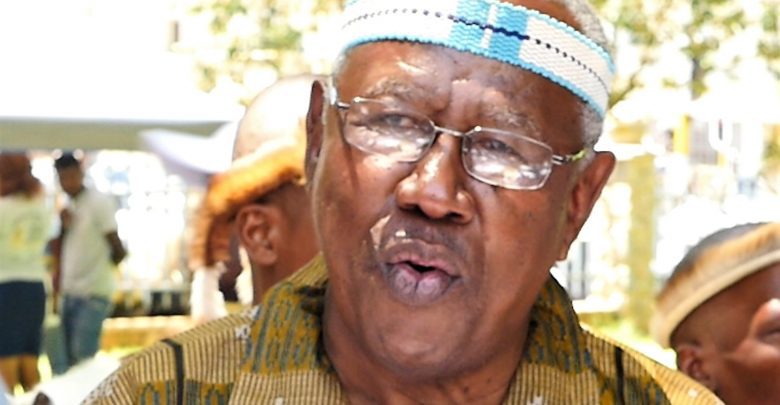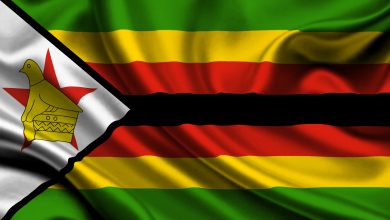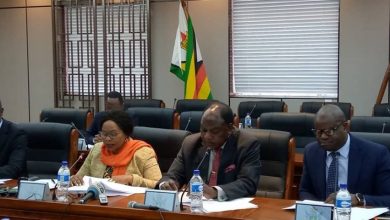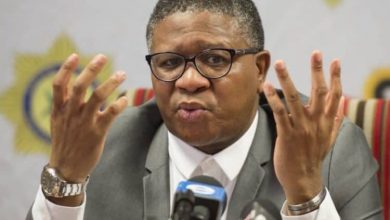Traditional institutions must be protected: Xhosa prince

Xhosa Prince, Mcleod Isolengwe Tshawe of Mbembesi says the institution of traditional chiefs must be protected and respected, as it is the centre of society and custodian of peoples’ culture and governance.
Delivering his address, at the launch of renowned cultural activist and arts doyen, Continueloving Mhlanga’s book: Mthwakazi Wars, Izimpi ZikaMthwakazi 1890-1983, during the weekend, Prince Tshawe said tradition played an indispensable role in weaving society together and urged people to safeguard it.
He noted Mhlanga’s book captured how the colonial master, Cecil John Rhodes planned the demise of traditional structures and used this argument as an entry point for his address.
“The most fundamental pillar of any society is its own culture. As Africans we should never be apologetic about upholding our own culture. Our culture is our very own design for living adaptation and consolidation of our Africanity.
“As Africans we should think and act in an African way. We can draw good practices elsewhere but we should incorporate them in our cultural framework and not the other way round,” Prince Tshawe said.
The Xhosa prince’s remarks came soon after the Emmerson Mnangagwa led administration officially dethroned Ntabazinduna Chief Nhlanhlayamanwge Ndiweni following ‘recommendations’ from the Matabeleland North Chiefs Provincial Assembly who said the former was involved in a chieftainship row with his elder brother Joram Khayisa Thambo.
Subtle in his approach, Prince Tshawe narrated how colonisation and racism undermined traditional institutions and warned chiefs were still prone to attacks.
“The first thing colonialists did was to attack the institution and establishment of our culture. When they came from Europe to our shores, they found our structures and systems intact and working effectively and efficiently.
“In order for them to conquer, they had to attack and make all attempts to destroy the institution of traditional leadership which was the custodian of our culture and governance. In a sense it was a pillar of our society and heritage,” he noted.
He also cited the wars of dispossession and resistance fought under the stewardship of kings or chiefs as defence for their communities.
“Our traditional leaders led from the front as commanders and generals of our warrior battalions. These African royals fought fearlessly with resilience and were prepared to sacrifice their own lives to protect our communities. Many of them we persecuted, jailed, banished, beheaded and brutally executed,” Prince Tshawe said and diplomatically highlighted that since traditional leaders were custodians of our culture, “colonialists’ realised people drew their inspiration from these royals and as a result were targeted by these scoundrels.”
He argued that since people were now liberated from white settler rule, they had to decolonise themselves and mainstream the institution of traditional leadership.
“I am not saying we must live a primitive lifestyle but I am saying we must embrace our Africanity and shake off coloniality. We must be original in the way we run our societies,” Prince Tshawe said.
Meanwhile, critics say the removal of Chief Ndiweni indicated the state had a political vendetta against him.
Bernard Magugu, chief administrator of the 1893 Mthwakazi Restoration Movement, condemned the un-cultural dismissal of Chief Ndiweni.
“Chief Ndiweni remains a chief and needs his people to recognise him, not anyone outside his chiefdom.”
He added his organisation was prepared to assist Chief Ndiweni fight for his rights.
Bulawayo MDC Spokesperson, Swithen Chirowodza, described what President Mnangagwa had done as a display of “callous dictatorship.”
“Chiefs are not conferred the honour of cheiftainships by presidents but is done according to lineage and blood. The local government act used to remove Chief Ndiweni is relic of the colonial past where the Rhodesian regime effected to contain traditional chiefs and it is shameful that Mnangagwa resort to such,” he said.
Khanyile Mlotshwa, critical studies analyst, noted Chief Ndiweni’s dethronement reflected the leadership vacuum in the country that failed to respect people’s traditions and customs.
“It is shocking that the president of the country allowed himself to be dragged into some sick political joke,” noted the social critic.
ZAPU national spokersperson, Iphithule Maphosa concurred that it was the responsibility of the Ndiweni family to select a chief for Ntabazinduna.
“Mnangagwa can’t stand Chief Ndiweni, the same way former late president, Robert Mugabe, hated Chief Khayisa, (Ndiweni’s father). It’s a confirmation Zimbabwe’s central system hates people driven leadership in the southern part of the country.
“The regime can only take away Chief Ndiweni’s ugly coloured regalia not his chieftaincy. Besides Chief Ndiweni never used the state regalia, opting for traditional attire as for the state car, the people can afford to buy for him another,” he quipped.
Methuseli Moyo had a different view, alleging Chief Ndiweni’s style of leadership had invited all the scrutiny.
“Chief Ndiweni has been all but a raging bull, hence the scars he has. Given Chief Ndiweni’s propensity to pick fights with authorities, some will argue his removal is political. But he must also blame himself for his situation if that is the case,” he said.
“Legally, yes the president appoints chiefs after all processes have been completed. Apparently in this case there have been grumblings and legal actions from among Ndiweni’s themselves. Then the provincial chiefs’ council recommended that the chief be removed.”






